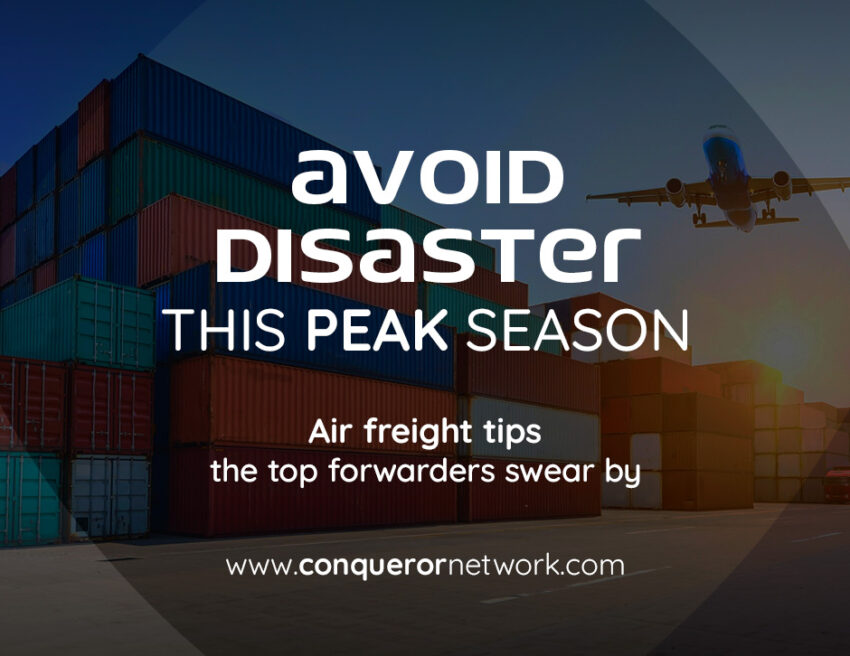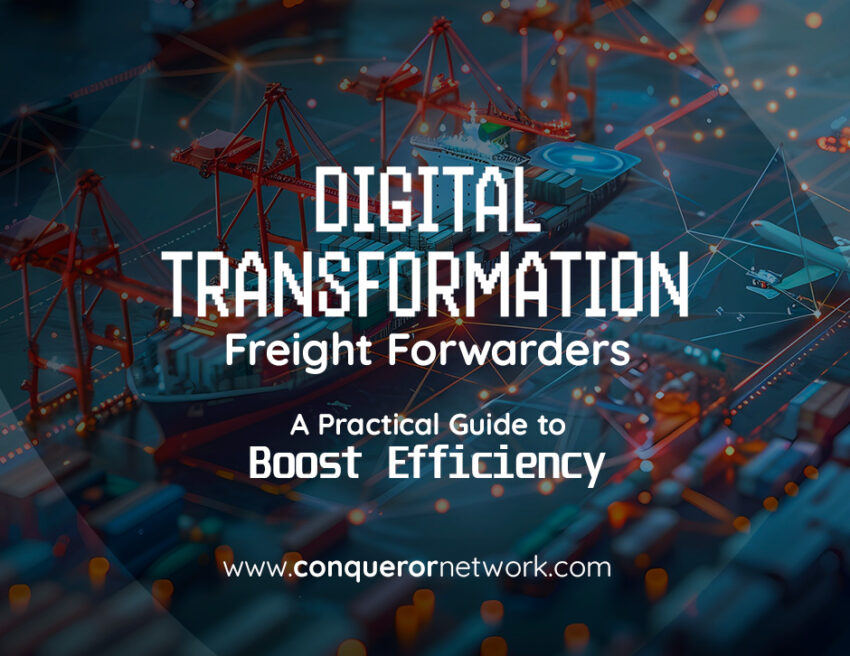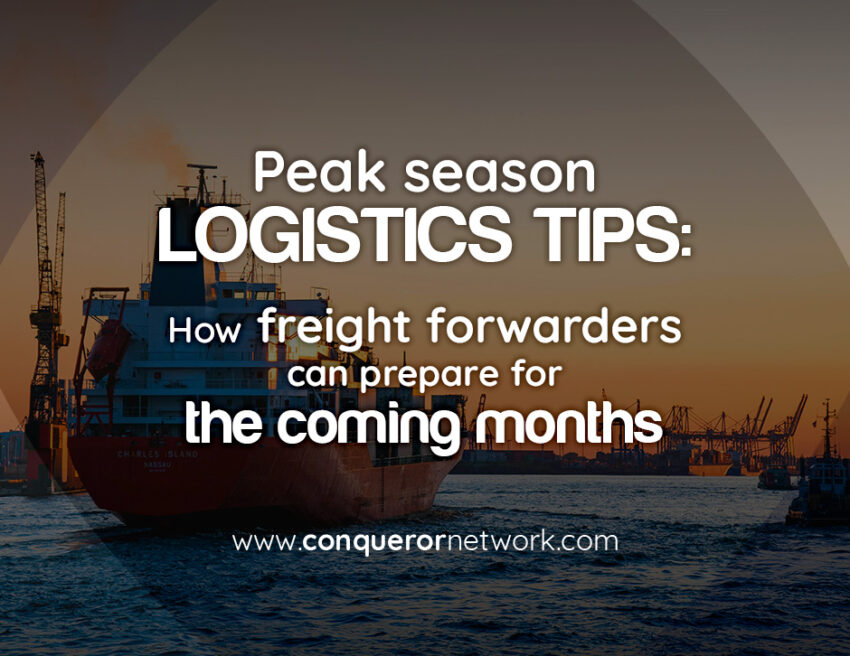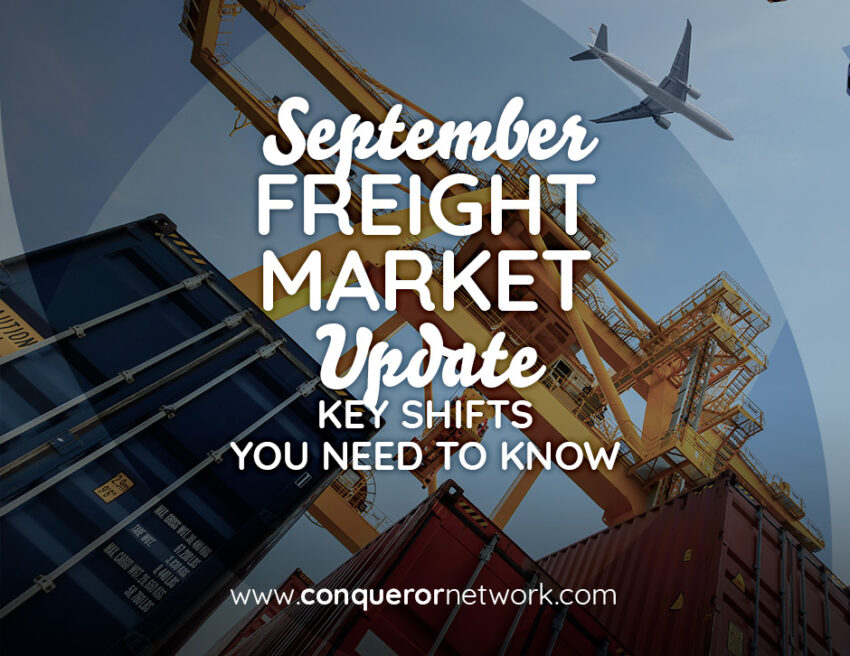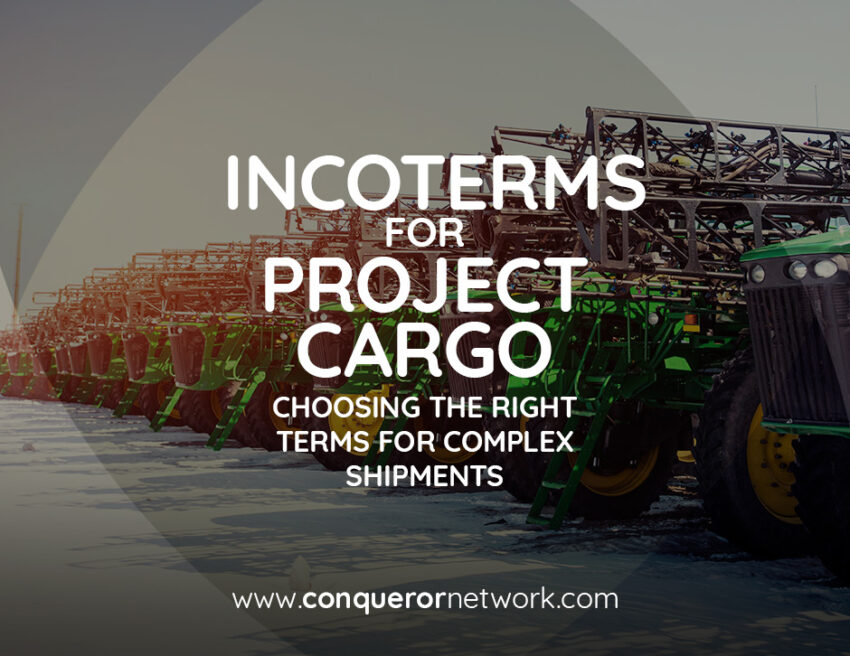As the final quarter of the year approaches, freight forwarders across the world brace themselves for one of the busiest times in logistics, the peak season. For air freight companies, this is the time when capacity shrinks, rates surge, and the pressure to meet tight delivery deadlines intensifies. From consumer electronics and fashion goods to…
Conqueror Blog
Category: Business tips
How to market your freight forwarding company online and stand out
Running a freight forwarding company is one thing, but marketing it effectively online is a whole different challenge. You’re not just competing with local players anymore; multinational logistics giants dominate the digital space, capturing attention with slick websites, ads, and social media campaigns. The question is: how can independent freight forwarders stand out, attract new…
Digital Transformation for Freight Forwarders: A Practical Guide to Boost Efficiency
Is Your Freight Forwarding Business Ready for the Digital Age? Have you ever wondered why some freight forwarding companies seem to stay ahead of the curve, even in the most competitive markets? How do they manage to handle more shipments, reduce errors, and improve customer satisfaction without hiring more staff or increasing operational costs? The…
Peak season logistics tips: How freight forwarders can prepare for the coming months
It’s late September, which means the countdown to peak shipping season has officially started. For freight forwarders, this period isn’t just about moving more cargo, it’s about handling chaos without losing control. The last quarter of the year brings surging demand, tighter capacity, and sky-high freight rates, making it the most stressful (and potentially most…
September Freight Market Update: Key Shifts You Need to Know
The September freight market has been anything but calm. Carriers have pushed through aggressive General Rate Increases (GRIs), blank sailings are tightening space, and port congestion in China is worsening. While shippers hoped for a post–Labor Day rate dip, what we’ve seen instead is a surge in spot rates, a strategic capacity squeeze, and rising…
Why Email Marketing Still Works for Freight Forwarders
In a world of social media campaigns, LinkedIn ads, and AI-driven CRMs, email marketing might sound a bit old school. But here’s the thing – email marketing for freight forwarders is still one of the most powerful and cost-effective ways to build relationships, generate leads, and keep your company top of mind for clients. Let’s…
Freight forwarding technology 2026- Innovations that will truly reshape logistics
If you’re a freight forwarder, you’ve probably asked yourself a few big questions recently. Which technologies should I actually care about? Which ones are hype? And, most importantly, what will my business look like in 2026 if I don’t adapt now? The logistics industry has always been shaped by ships, planes, and ports. But today,…
Customs just rejected your shipment… now what? A freight forwarders guide to customs clearance problems
If you’ve worked in freight forwarding long enough, you’ve probably had that sinking feeling: the call or email saying your client’s shipment is stuck at customs. The cargo’s not moving, the clock is ticking, and storage charges are climbing by the hour. Customs clearance problems aren’t just an occasional headache. In some cases, they can…
10 things freight forwarders should NEVER say to a client (if you want to keep them)
Let’s be honest. You probably didn’t get into freight forwarding for the small talk. You got in because you know how to move cargo from point A to B, handle complex logistics, and keep operations running even when the world feels upside down. But here’s the thing: being great at freight doesn’t always mean you’re…
Incoterms for project cargo: Choosing the right terms for complex shipments
When you’re dealing with oversized, heavy, or high-value cargo, the stakes are higher. One mistake in documentation, one misunderstanding about who’s responsible for what, and your entire shipment could stall at the port or worse, cost you thousands. That’s why choosing the right Incoterms for project cargo isn’t just a technicality. It’s a strategic decision…


